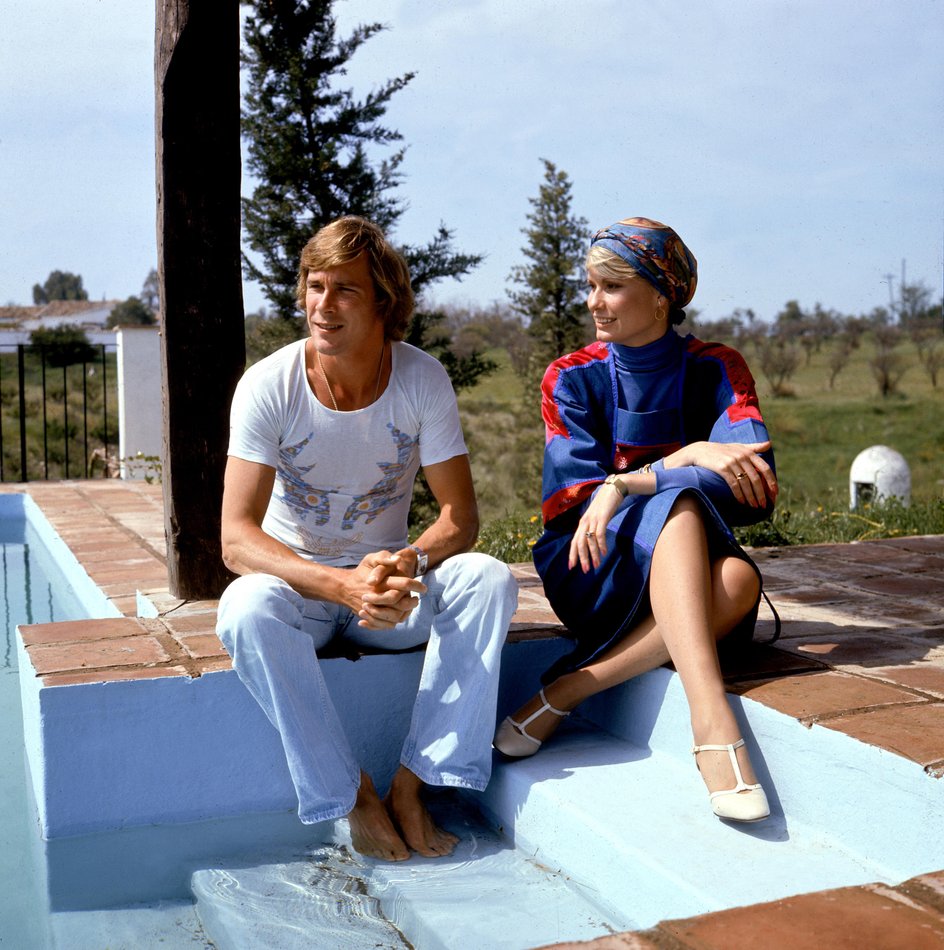He slept with 35 women and partied until the morning. His end was tragic
The unexpected death on the night of June 14, 1993, ended a life full of extravagance, risk, and success for James Hunt. The driver who won the Formula 1 world championship title, has entered not only the annals of sport, but also in pop culture as a rebellious playboy. His lifestyle, balancing between brilliant performances on the track and endless parties, made him a unique and controversial figure.
James Hunt was 17 when he was supposed to enroll in medicine. His parents Susan and Wallis had saved £5,000 to pay for his studies and the whole family was delighted that their James would become a doctor. However, his fate took a completely different direction after a weekend visit to the racetrack. After this, the boy decided to abandon his previous plans and pursue a career in motorsport. His parents refused to support him financially, so Hunt took two jobs to follow his passion.
The road to Formula 1 was full of obstacles. Hunt became famous not only as a driver, but also for his numerous accidents. His unpredictable driving style earned him the mocking nickname "Hunt the Shunt". Despite this, he stood out with his talent, which helped him rise through the ranks of the racing hierarchy. The key moment turned out to be when Lord Alexander-Fermore Hesketh invited him to join his team.

Hesketh’s team could easily have been the basis for a film about the carefree lives of wealthy eccentrics. The crew was dubbed a “travelling circus.” Hunt and the young British baron would arrive at races in Rolls-Royces, surrounded by models, and drink champagne regardless of the outcome. Despite this rowdy atmosphere, Hunt managed to make the most of his time. After splitting with Hesketh in 1975 to join McLaren, he won the F1 world championship in a memorable 1976 season in which his rivalry with Niki Lauda became the stuff of legend.
"No one in history has ever been like him, and no one ever will be," said Niki Lauda fondly, remembering his friend and rival.
The 1976 season was a rollercoaster of emotions. It saw Lauda's dramatic crash at the German Grand Prix, in which the Austrian suffered serious injuries. Hunt took advantage of his rival's absence, but Lauda returned to the track in impressively short time to fight until the last race of the season. The decision about the world champion was to be made in the last race of the season at Fuji Speedway near Tokyo. Lauda had a three-point lead over Hunt. What James Hunt did on the eve of the most important race of his career is truly hard to believe.
Hunt was staying at the Hilton in central Tokyo, where coincidentally 35 British Airways hostesses were waiting for the next flight. According to witnesses, James invited them all to his luxury suite, ordered gallons of alcohol, marijuana and cocaine, and partied all night.
The deciding race was held in rain, which made visibility minimal. Lauda, considering the conditions too dangerous, withdrew from the race. Hunt, despite exhaustion and previous excesses, crossed the line in third place, winning the coveted title.
He called to propose. He was dead the next day.After retiring from Formula One, Hunt became a television commentator, and his distinctive style of speaking won him both supporters and critics. His personal life evolved from partying to starting a family and giving up drugs. In the winter of 1989, 35-year-old James met Helen Dyson, 18 years his junior, in a restaurant in Wimbledon. He hid the relationship from his friends, and she from her parents. He gave up drinking, partying and drugs. He started living a normal life. He rode a bike, bought a regular car and became a "normal" person.
"For three or four years he lived a normal life. He was happy, he adored Helen and he couldn't wait to move in with her," Lauda said.
Determined to spend the rest of his life with Dyson, Hunt called her on June 14, 1993, and proposed. Helen, of course, said yes, and a delighted James told his friends and went to bed. He never woke up again. He died in his sleep that night of a heart attack.
przegladsportowy




